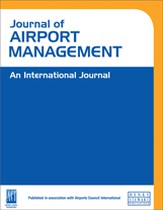Navigating partnerships and collaborations in airport training
Abstract
The aviation industry is experiencing a transformative period marked by rapid technological advancements, rising passenger demand and the need for enhanced safety and efficiency. Airports, as strategic centres for global connectivity, trade and innovation, require a highly competent, adaptable workforce to manage the complexities of modern airport functions. This paper underscores the significance of partnerships and collaborations in airport competency development, examining their role in driving innovation, reducing costs and ensuring compliance with international standards. By highlighting best practices such as knowledge exchange programmes, joint simulations and technologyintegrated training, the paper illustrates how collaborative efforts advance training methodologies, improve operational and business performance and enhance workforce capabilities. Moreover, it addresses the influence of leading organisations in shaping global training standards and the critical role of structured collaboration among stakeholders. Emphasis is also placed on enterprise-specific competency frameworks and the need for performance-based, measurable outcomes in training partnerships. This article is also included in The Business & Management Collection which can be accessed at https://hstalks.com/business/.
The full article is available to subscribers to the journal.
Author's Biography
Tunç Cavcav has led the IGA Academy and the People and Culture function at Istanbul Airport since 2021, overseeing the development of over 15,000 employees. Tunç has positioned IGA Academy as one of Europe’s top international aviation training centres, ranking second in international training delivery and among the top three globally in secondee exchanges. He has forged key global partnerships with the Airports Council International (ACI), International Airports Training Association (IATA), International Civil Aviation Organization (ICAO), Eurocontrol, Transportation Security Administration (TSA) and European Organisation for Civil Aviation Equipment (EUROCAE), enhancing the Academy’s global presence. Under his direction, the Academy has launched impactful initiatives including sustainability programmes recognised internationally, a high-performing foreign language school, and collaborations with 21 universities that bridge theory and practice. Tunç holds a Master’s degree in political economy from the London School of Economics and a PhD in International Relations from Bilkent University, Turkey. A lifelong learner with a helicopter pilot’s licence, Tunç blends academic depth with real-world versatility.
